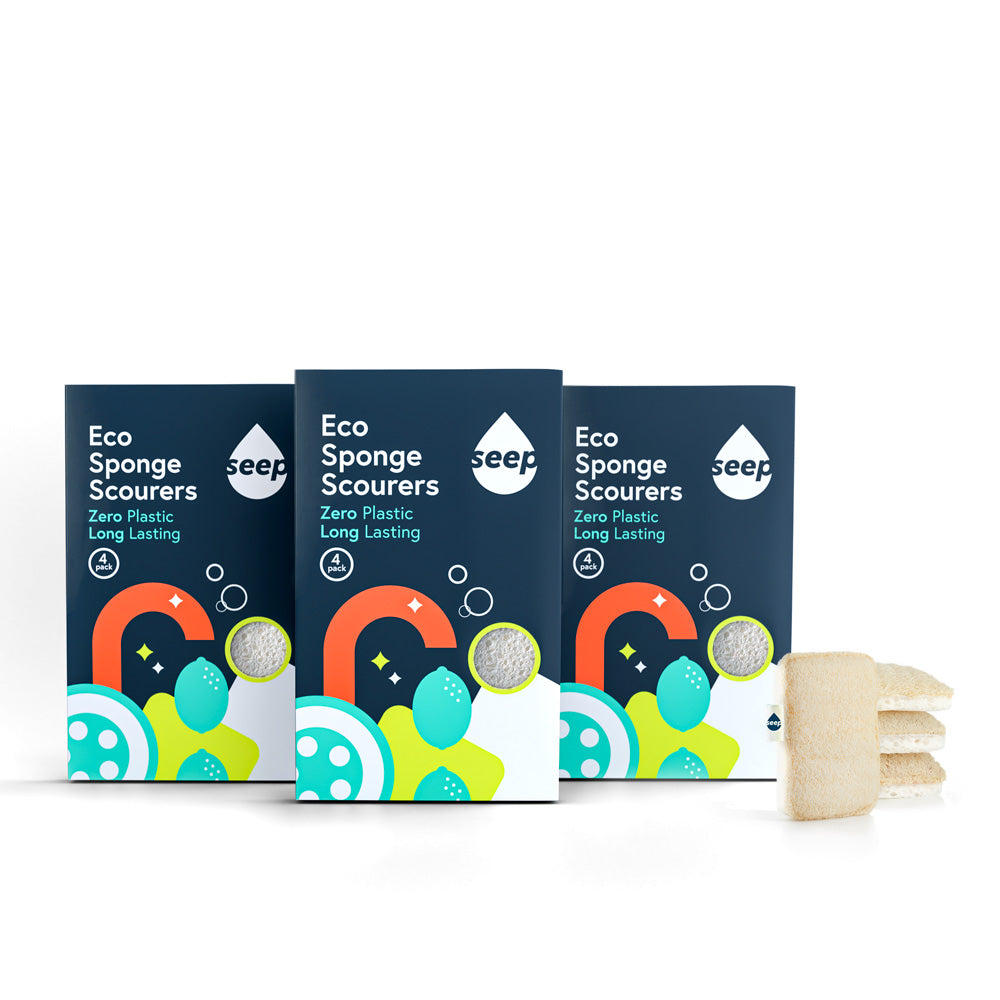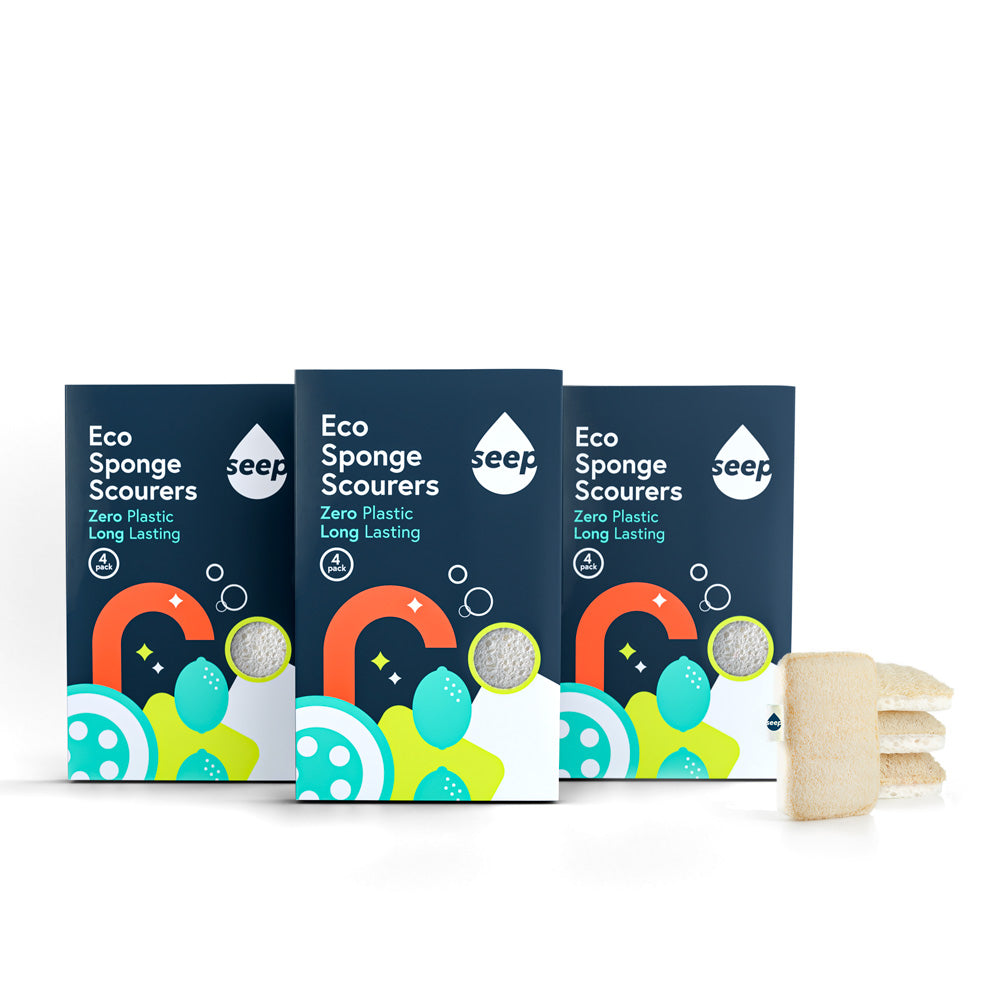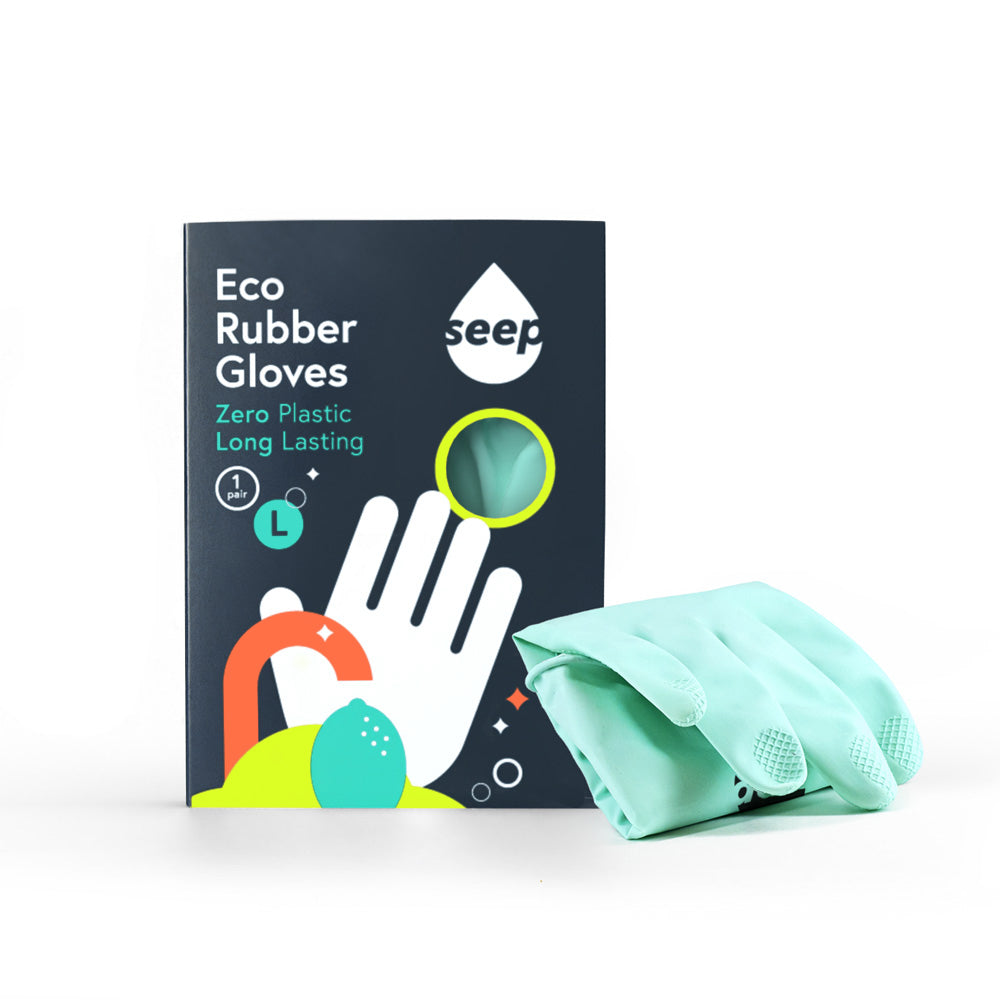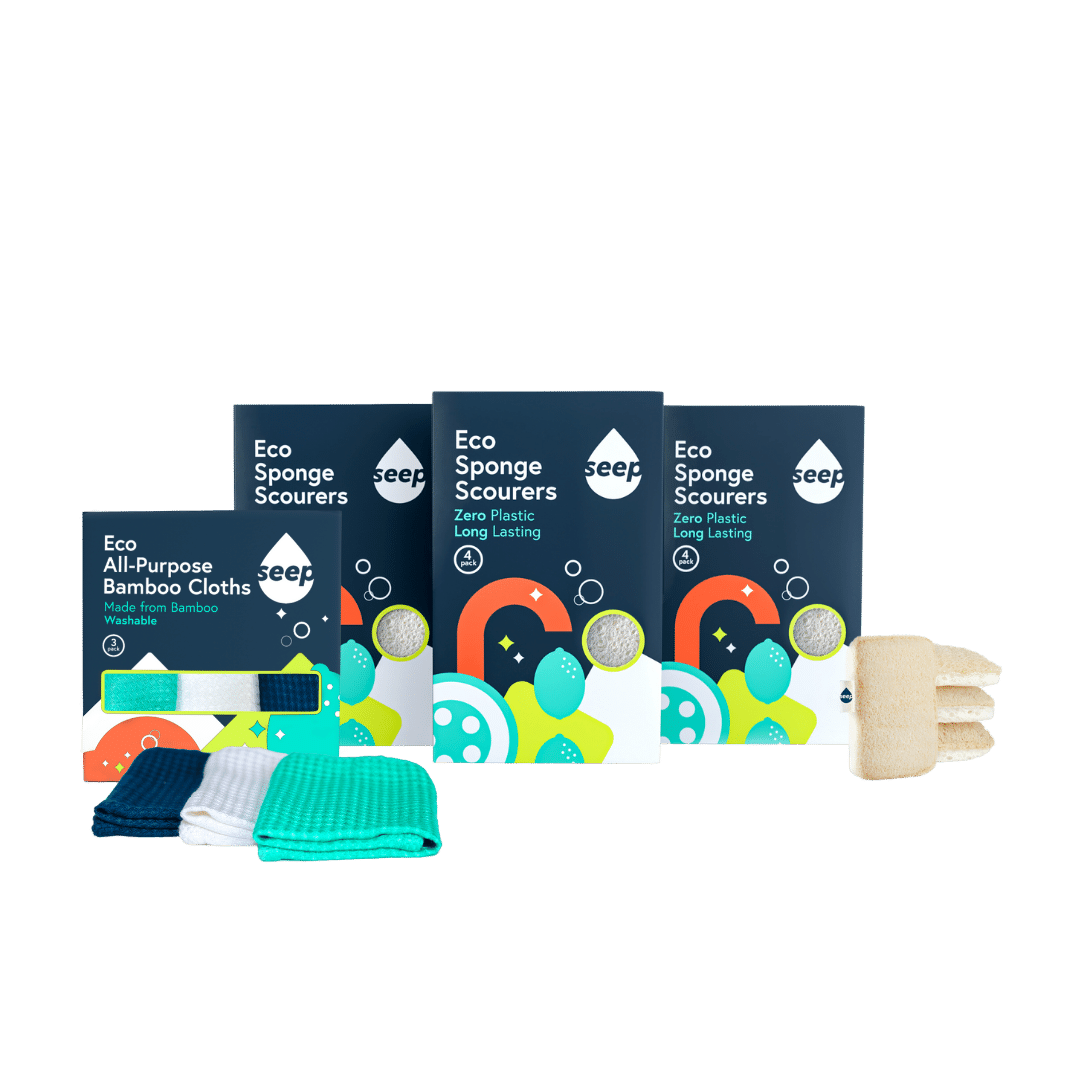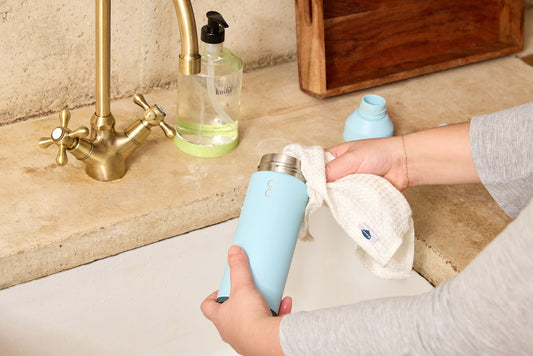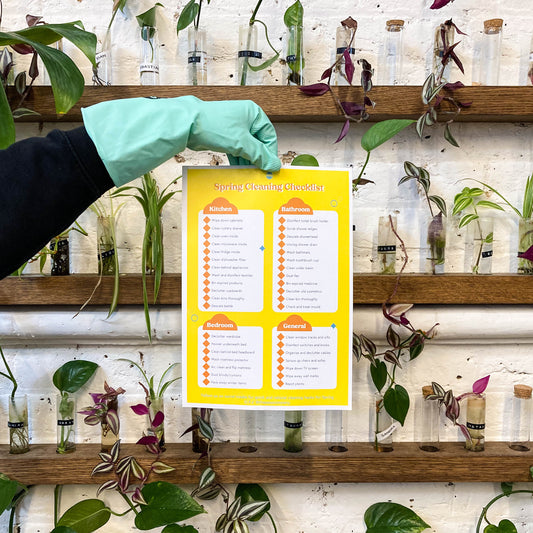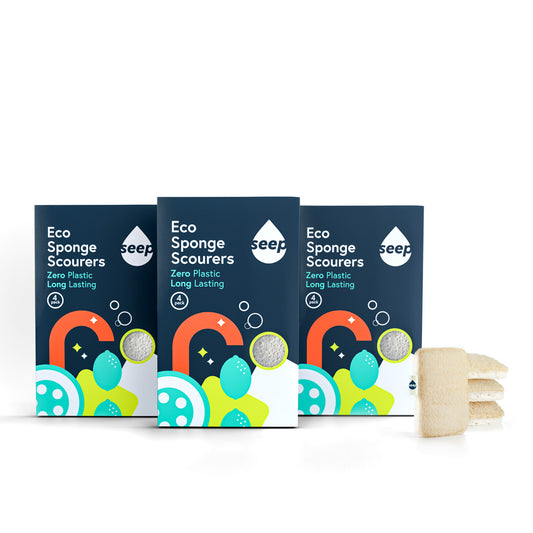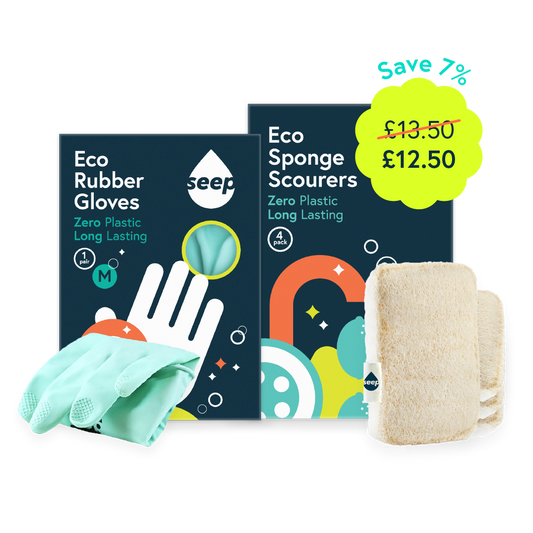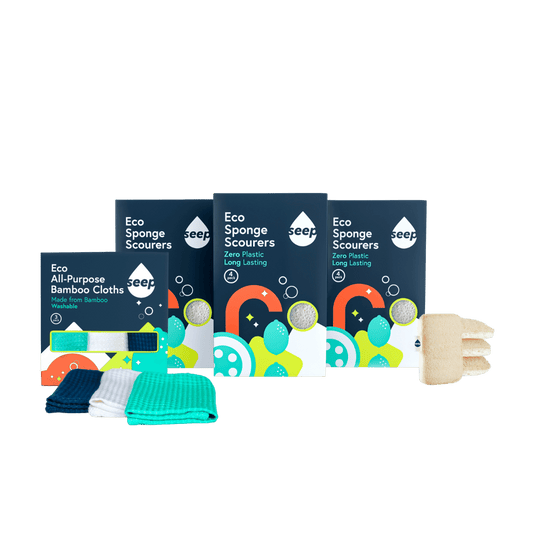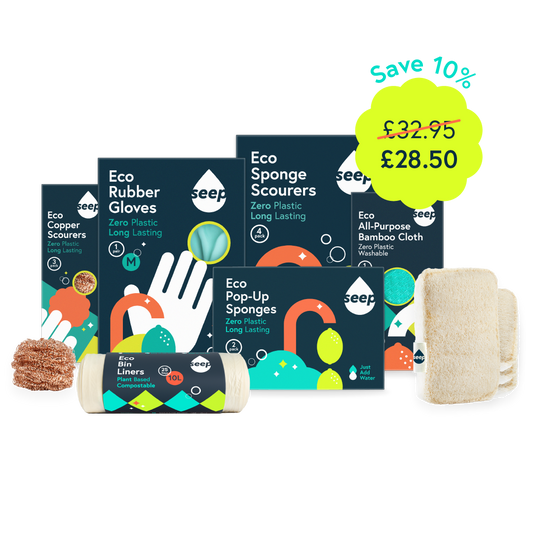
Hand hygiene and health has been a huge focus the last couple of years. We know all of those helping hands, wiping, rubbing, and scrubbing away, deserve to be using ‘clean’ products that are skin kind💙
We have 4 tips to make sure you spring clean brilliantly this year, and without harming people or the planet🌍
Psst! Look out for a special code from our friends at Purdy & Figg too🤫
1. Look past the label

Don’t be immediately sucked in by a “natural”, “non-toxic” or “vegan” label on the front of a bottle, it’s a good place to start but don’t stop your investigation there🧐 Look at the ingredients on the back and if you don’t know what they are, then look them up!
To get you started, below we have listed a few common ingredients you will find in bulk cleaning products which we recommend avoiding if you can for your spring clean:
- Ammonia: when inhaled, swallowed or touched this product is toxic
- Butyl/Ethylene Glycol: Dangerous to the nervous system, liver and kidneys
- Chlorine: Bleach is strong, an irritant to skin and highly corrosive, avoid it completely if possible
- Phosphates: harmful to aquatic life (often in dish detergents)
- Petroleum Solvents: commonly found in cleaning products as surfactants
2. Ingredients matter

As suggested above, traditional cleaning products contain harsh chemicals which eventually end up in our water sources. Streams and rivers can end up polluted as these chemicals take years to degrade, or may never degrade down at all. Look for products which are naturally derived and sustainable🌿
A great example of this is Purdy & Figg, their beautiful cleaning products are made up of organic, natural ingredients with 100% pure essential oils🌸This means their products are kind to the environment, help protect aquatic life as well as helping to prevent harmful chemicals from entering the food chain.
✨Get 15% off at Purdy & Figg with code SEEP15✨
*Transparency is huge when looking for safe products for yourself and the environment. If you are finding it difficult to find out more about a brand's sustainability it is probably a sure sign they aren’t what you’re looking for!*
3. Know your kitchen cupboard contents

Extreme disinfectant & antibacterial is rarely needed, get to know what you can use in your kitchen cupboard as a natural, cheaper spring clean alternative:
4. Don't overlook your accessories

ou know that every minute of everyday we bin 1,000 kitchen sponges the majority of them being virgin plastic? Just like with your cleaning sprays, it is important to ensure that they are naturally derived from sustainable sources. For example, Seep’s cellulose sponge with loofah scourer, which can be easily composted when disposed of.
😎Subscribe with Seep’s email to receive 10% off your first order😎
